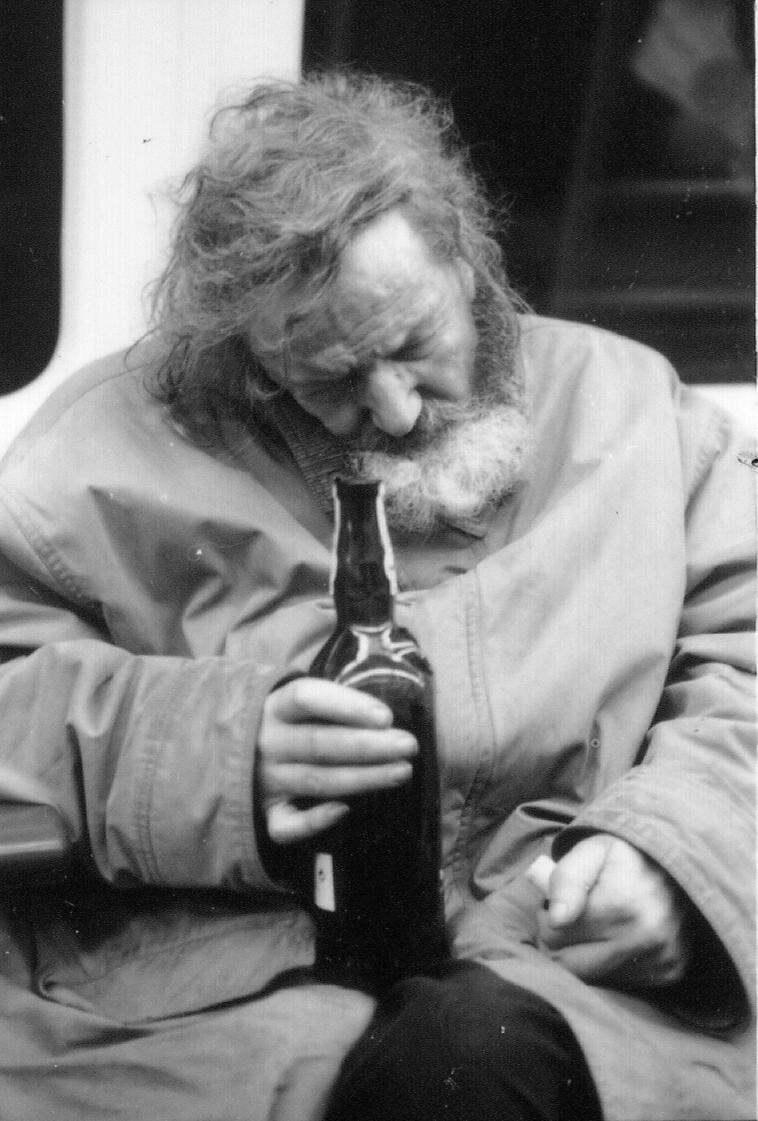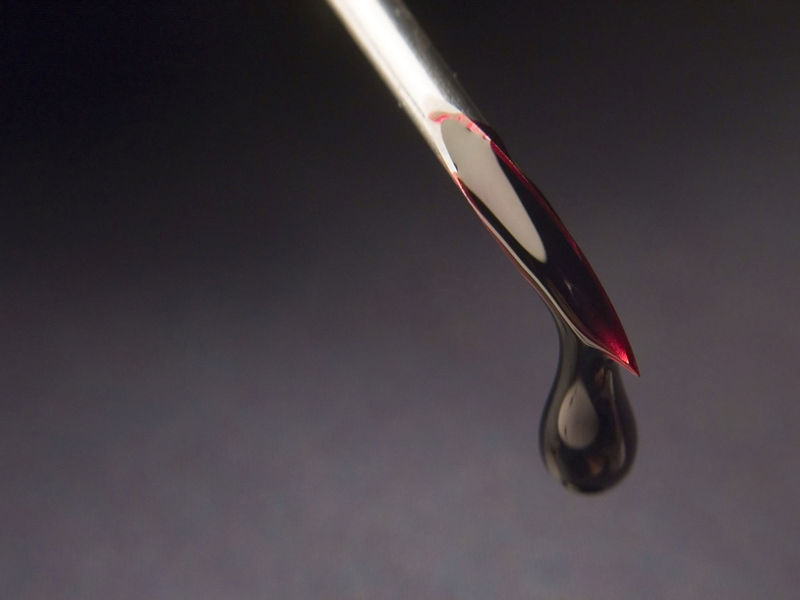Humans have always been strangely drawn to things that alter our consciousness and perception, whether it's Amazonian tribes using the juice of ayahuasca vines in their religious ceremonies, Siberian shamans consuming hallucinogenic reindeer urine or a British office worker drinking fermented grain products and inhaling the smoke of dried tobacco leaves at the pub after work on a Friday evening.
 |
|---|
Most of these are only moderately harmful in small amounts. However, many of these substances have the potential to cause addiction, leading to much more significant problems. Drug addiction is a disease that afflicts millions globally, and can cause immense damage at both personal and societal levels. The battle against addiction is one that is waged both within the user and society at large. Fortunately, some of the world's finest minds are engaged in the search for new weapons.
Addiction
The mechanisms of addiction are varied and complex, but three of the most important aspects are the neurological, the psychological and the social.
At a neurological level, most drugs either stimulate or suppress certain pathways in your brain. This alters the brain's chemical balance, and thus its function, producing the high experienced by the user. For example, a brain messenger called dopamine produces a sensation of happy satisfaction, and almost all addictive drugs cause an increase in the levels of dopamine in the brain. When exposed to high levels of dopamine, the brain responds to this strong signal by becoming less sensitive to it (known as becoming "tolerant"). When the drug wears off, the brain's dopamine tolerance is still elevated, but the dopamine has gone. This results in a feeling of loss or need, which can be sated by taking the drug again.
  |
|---|
Psychologically, over time the user learns to associate taking the drug with feeling good. Then, whenever they think about the drug they want to take some and relive that feeling. Additionally, when they're stressed or unhappy, they get the urge to use the drug to alleviate it. These feelings are known as cravings.
Socially, there are several factors that can lead to addiction. Among the most important are friends and family, as they shape what you think of as "normal". Take tobacco, for example. Smoking is seen as normal, or even cool, in some circles, but in others quite the opposite. Media portrayals and public perception of addictive substances can have an influence too. This is why films, music and other media containing drug references are given age restrictions, designed to prevent children being exposed to them. Tobacco advertising was banned in the UK in 2002, and there are calls for plain packaging too. Along with the ban on smoking in enclosed public places, these are part of an effort to make smoking less of a part of everyday public life; however levels of smoking are still high - at around 20% of over 21s.
With these three factors at work, some of us fall into the trap and become addicted to one or more substances. But what effects does addiction have?
The problem
 The harm to addicts (also known as "problem drug users") themselves comes in several forms. The drug itself might be toxic, and repeated use will damage the body over time. A good example of this is the liver damage that is a common symptom of alcohol addiction. Addicts' mental health often suffers as well, leading to problems with relationships, work and day-to-day life.
The harm to addicts (also known as "problem drug users") themselves comes in several forms. The drug itself might be toxic, and repeated use will damage the body over time. A good example of this is the liver damage that is a common symptom of alcohol addiction. Addicts' mental health often suffers as well, leading to problems with relationships, work and day-to-day life.
These problems impact on society, with a 2008 Home Office report estimating that problem drug users account for somewhere between a third to half of all acquisitive crime (that's robbery, burglary and theft) in the UK. The same report estimated the total UK healthcare and criminal cost of Class A drug use to be over £15 billion per year.
With strict drug laws and harsh enforcement yielding little progress in cutting addiction rates, there is a growing call to view addiction as a sickness rather than a crime. But what tools do we have for treatment of addiction?
Kicking the habit
Whether voluntarily or by court order, people with addictions have various treatment options available to them. These fall into three main categories: abstinence, psychological therapy and drug replacement therapy (such as methadone for heroin addicts). The most effective treatment regimes combine all three approaches. Unfortunately, access to these services varies greatly across the globe.
If an addict can successfully complete a course of rehab, they stand a chance of living the rest of their life clean. Unfortunately, a common problem is that upon returning to their normal lives they often fall back into their old addiction. This is known as "relapsing", and with some drugs (such as heroin) this happens in more than half of all cases.
Relapse is notoriously difficult to prevent, as old friends and situations from a recovering addict's previous life can trigger a return to old habits. However, if we can find ways of helping to prevent relapse then the patient's chances of leading a normal life are greatly improved.
The jab
Another potential solution that has gained interest recently is to use your body's own defences to fight off the drug. This is known as immunotherapy. It works very much like vaccinations against other diseases, by attaching part of a drug molecule to an immune-activating molecule. This causes your immune system to make chemicals called antibodies, which neutralise the drug molecule. The next time your body recognises the drug in your blood, it quickly produces more of these antibodies. They then lock onto the drug molecule and stop it getting into your brain. This way, if a recovering addict uses the drug, they don't get high and the addiction doesn't get reinstigated.
 |
|---|
However, creating these vaccines is far from simple. For starters, the immunising effect has to be strong and long-lasting. Some conventional vaccines (tetanus is an example) need several subsequent booster injections to be fully effective, which is fine with most patients. In the case of addiction vaccines however, getting addicts to reliably attend treatment appointments can be problematic.
Another issue is making sure the vaccine is suitably specific. Some drugs are actually remarkably similar to molecules naturally found in the human body. Heroin, for example, belongs to a group of chemicals called opioids. This group also includes endorphins, chemical messengers used by your body to control crucial functions like pain and emotion. Any vaccine against heroin has to leave our own natural opioids alone, which is very tricky.
There are groups of scientists across the globe working on overcoming these problems and creating vaccines for many of the most harmful drugs, particularly heroin, cocaine, nicotine and methamphetamine. Some of these have been shown to be effective in lab rats, and are currently in pre-clinical and clinical human trials to see if they're safe and effective for use in people. Alcohol addiction causes a huge amount of harm globally, but unfortunately is much harder to develop a vaccine for because it's such a small molecule.
Vaccines must undergo rigorous and extensive testing before being approved for use, so don't expect to see them in clinics for a few years yet. However, if/when they do come into circulation, they will form an important addition to the arsenal in treatment of addiction.
No silver bullet
 While these developments are very exciting, it's important to remember that these vaccines won't necessarily be a foolproof cure-all for addiction. Neither is it practical to pre-emptively vaccinate an entire population against a drug, not to mention the ethical issues involved.
While these developments are very exciting, it's important to remember that these vaccines won't necessarily be a foolproof cure-all for addiction. Neither is it practical to pre-emptively vaccinate an entire population against a drug, not to mention the ethical issues involved.
Instead, it's likely that immunotherapy will be an important tool in helping people who want to stay clean after rehabilitation accomplish their goal. This will allow them to live healthy, happy lives and reintegrate back into society.
With continuing research into addiction and how to treat it, we can help people free themselves from its grasp. However, this can only be possible if we treat addicts as patients to be helped rather than as criminals to be punished.
References
- Previous Where do all the bees go?
- Next Watching the skies










Comments
Add a comment